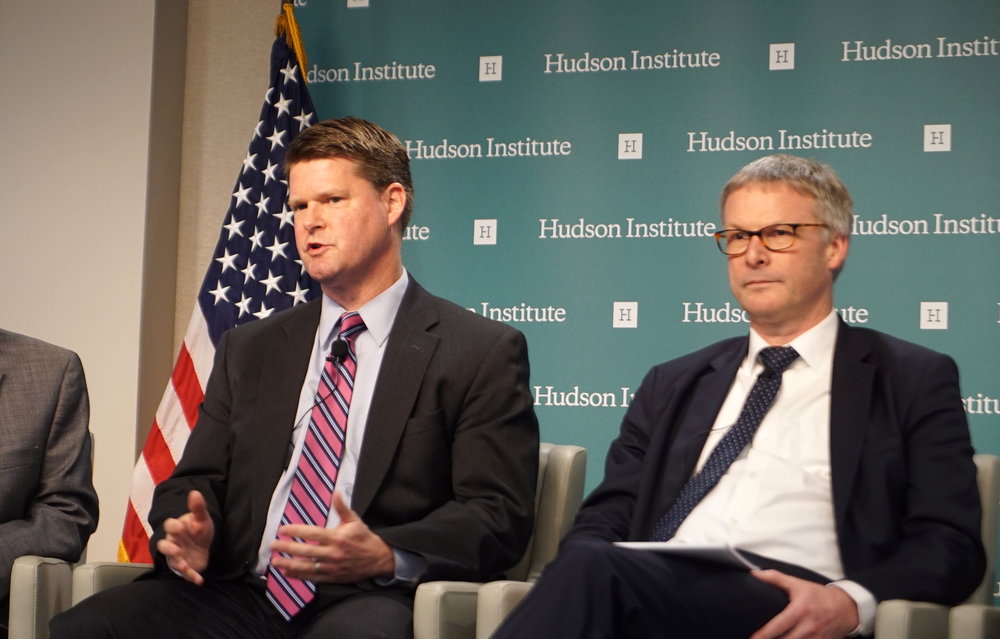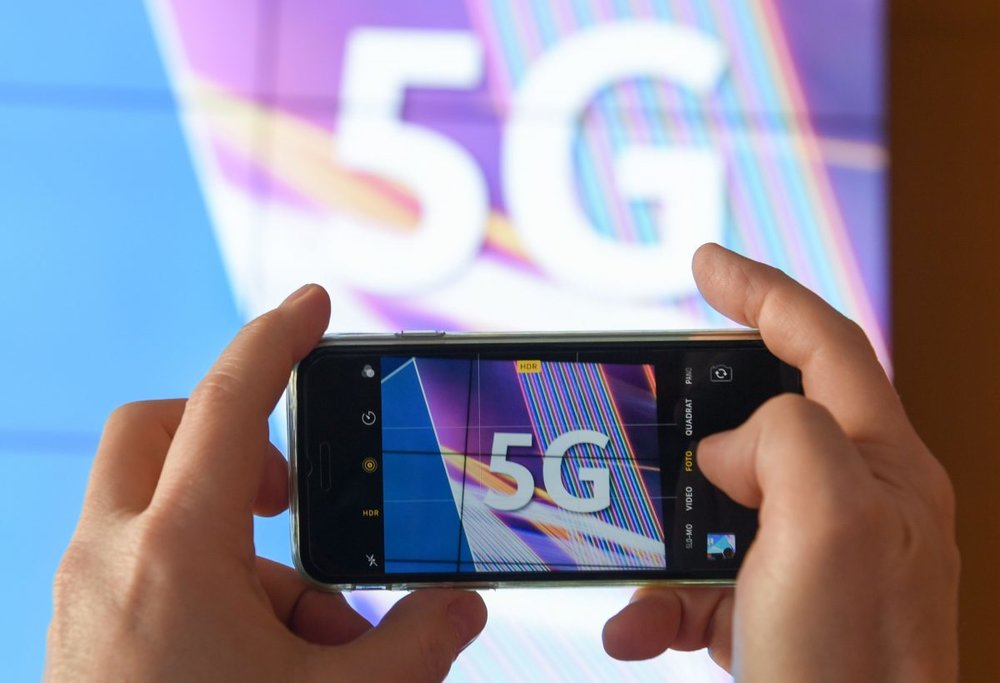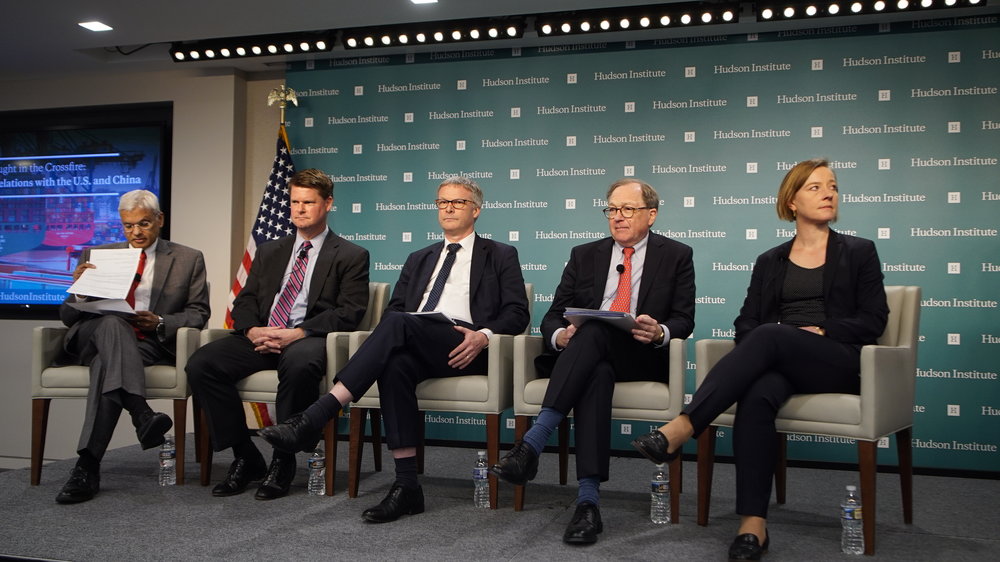April 21, 2019 Updated: April 21, 2019
WASHINGTON—Statesmen and experts recently wrestled with what role Europe should play as it confronts an increasingly competitive dynamic between the United States and China.
After being entangled with internal crises and problems for ten years, Europe has woken up to find itself in a totally different world, and is trying to find its new role and to balance its relations with the United States and China, according to Jeppe Tranholm-Mikkelsen, Secretary-General of the Council of the European Union.
Speaking at the Hudson Institute in Washington on April 16, Tranholm-Mikkelsen said that although the title of the event, “Caught in the Crossfire: Balancing EU relations with the U.S. and China,” was somewhat provocative, it did spell out the essence of the situation.
“The EU is in the process of adopting a more serious approach to its relations with the rest of the world, and to its global role,” Tranholm-Mikkelsen said.
He said this was happening because, after ten years of various crises, Europe’s economy is now in better shape, with its highest employment rate and six years of continuous growth, while illegal immigration has gone back to the pre-crisis level. That’s why Europe has the capacity to look into the future and at the rest of the world.
Tranholm-Mikkelsen said reality is pushing Europe to think about its future. The United States has a new president whose approach to the international rule-based order is different; U.S.-China relations have changed; and China’s GDP doubled while the EU was fighting its way out of crises.
Tranholm-Mikkelsen said, China presents both an opportunity and a challenge for Europe. However, with China’s cutting-edge technology, a state led long-term strategy, and unfair trade practices, the challenge it poses is more “in focus.”
He also said the situation inside Europe has changed: with no big states left in Europe, individual states cannot exercise sovereignty and have to act together.
Transatlantic Bond A Key Factor
Tranholm-Mikkelsen said, Europe must define its role in the relationship between the United States and China and “find our role in this context.”
“How that ultimately plays out, of course, does not only depend on us. It depends very much also on China and on the U. S. We are seeking cooperation with both. We want to preserve a rule-based international order, but we also want to reform it.”
Tranholm-Mikkelsen said that the old rules created a long time ago do not fit the purpose any longer, especially as they don’t take into account China’s changing role. “So we need to reform that order to make it more resilient, more fair, and better fit the purpose.”
“The European natural inclination is, of course, to ally as closely as possible with the U.S. The Transatlantic Bond is not just words. The Transatlantic Bond is deeply rooted in history, in democratic values, and in alliance. That is the reality that I think is very much present among the leaders when they meet in the European Council. They want the Transatlantic Bonds to continue; and they want to strengthen it, (to have) it continue to be a key factor in how to place ourselves in this world.”

(L-R) Randall Schriver, Assistant Secretary of Defense for Indo-Pacific Security Affairs and Jeppe Tranholm-Mikkelsen, Secretary-General of the Council of the European Union at the Hudson Institute in Washington on April 16. (Jennifer Zeng/The Epoch Times)
China A Particular Concern for US
Randall Schriver, Assistant Secretary of Defense for Indo-Pacific Security Affairs, said, “We are particularly concerned about the trajectory of China, China with a different vision, different aspirations for the region. And if those goals are achieved, if they realize that, we could see a very different Indo-Pacific region, where there is backsliding in terms of human rights and religious freedom.”
“Everyone should be concerned about what’s going on in Xinjiang and Tibet. We should take every opportunity to talk about it, because it is underreported, the human tragedy that is unfolding right now in Xinjiang.”
Schriver stressed that there are “ideological battles” between the United States and China, as Vice President Pence had pointed out in his speech at Hudson on Oct. 4 last year, “when he talked about the promotion of certain enduring values that China doesn’t really pursue in its own relations.
“In fact, many times just the opposite. Their predatory economics leads to greater corruption and weaker governance.”
Cooperation Between US and Europe
Schriver said while the Chinese are very smart and opportunistic, and will choose the type of engagement with a particular country based on what they can learn from that country, and what they can extract from them, there are many areas in which the United States and the European Union can cooperate: sharing information and intelligence, learning from each other about best practices, developing operational approaches in the Indo-Pacific region, capacity building, offering other countries alternatives to China, protection of technology and critical infrastructure, and so on.

A journalist takes pictures of a projection screen prior to the start of Germany’s auction for the construction of an ultra-fast 5G mobile network on March 19, 2019 at the German Federal Network Agency in Mainz, western Germany. (Arne Dedert/AFP/Getty Images)
Battle Over 5G: US Warnings and Europe’s Choices
Schriver used 5G networks as an example of trading experiences with each other.
He said, “We are looking right now at a particular challenge with 5G communication networks. We recognize in the United States that we don’t start at the same place, there are countries that have 4G networks, for example, but we need to end up at the same the place, which is having confidence and assurance that we can continue close relations, share the most sensitive information that we need to share as partners and allies, and understand that we can do that without compromise. ”
Schriver said the United States will continue to remind European countries that when they make decisions, they need to consider whether the United States will feel confident to share information with them.
According to recent data, despite the fact that the United States has been sending out warnings about Huawei’s security threats for several years, countries around the world are still awarding Huawei contracts to develop 5G networks. Huawei has won more than 18 new 5G commercial contracts in the past five months, half of which came from Europe.
Thomas Duesterberg, Senior Fellow at Hudson Institute, said he was very disappointed at the quality of the cooperation between the United States and European Union on tough issues, like Huawei and the 5G dispute, as well as pushing back against China’s “One Belt & One Road” program. The EU has been too slow to respond to some of the challenges.
Liselotte Odgaard, Visiting Senior Fellow at Hudson Institute, said that recent problems like Brexit, migration, and the China challenge have shown that the 28 (soon 27, once the UK leaves) countries can actually stand together. So it is worth waiting even if sometimes it takes time for these countries to respond.
“Europe is also taking action on the issue of digital economy, and China’s practices there,” Odgaard said. “The EU is an area where it cannot order the countries to do (something)…But you’ve already seen stuff happening. Denmark is not signing up to Huawei’s 5G. They are relying on Ericsson. Countries are starting to move on this.”
Odgaard said, “Huawei does in many cases offer the best and cheapest solutions. So it is a political decision… If you just leave it to economic actors, they are going to choose Huawei in many cases.”
Source: https://www.theepochtimes.com/caught-in-crossfire-between-us-and-china-eu-seeks-role_2888885.html
Caption: (L to R) Ashley Tellis, Senior Fellow and Tata Chair for Strategic Affairs, Carnegie Endowment for International Peace, Randall G. Schriver, Assistant Secretary of Defense for Indo-Pacific Security Affairs, U.S. Department of Defense, Jeppe Tranholm-Mikkelsen ,Secretary-General, European Council of Ministers, Thomas J. Duesterberg, Senior Fellow, Hudson Institute, Liselotte Odgaard, Senior Fellow, Hudson Institute, at “Caught in the Crossfire: Balancing EU relations with the U.S. and China” discussion at Hudson Institute in Washington on April 16, 2019. (Jennifer Zeng/The Epoch Times)

